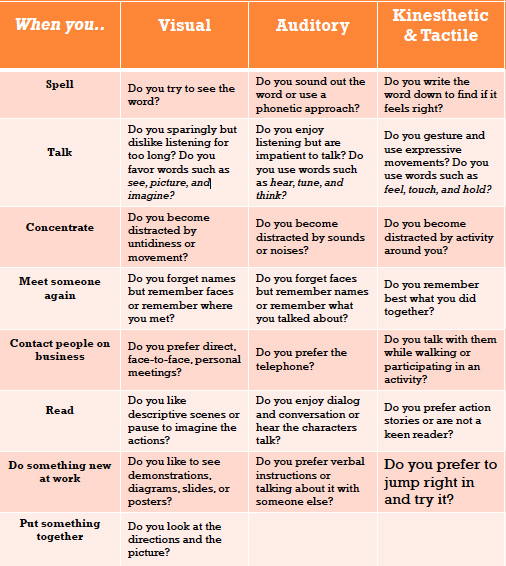Balancing kids and co-workers on a crazy schedule
 Regardless of whether you’re in the office or at home, being a mom is tough. Stay-at-home moms have to deal with subordinates that are more likely to fling food on the ground than turn in a project on time. And at least in the office, Shelly from IT won’t throw a temper tantrum or draw on the walls. Hopefully. She’s not two, right?
Regardless of whether you’re in the office or at home, being a mom is tough. Stay-at-home moms have to deal with subordinates that are more likely to fling food on the ground than turn in a project on time. And at least in the office, Shelly from IT won’t throw a temper tantrum or draw on the walls. Hopefully. She’s not two, right?
Working moms, on the other hand, face an entirely different, yet no less difficult set of problems. Does that new job come with a nice daycare nearby? What do you do when the daycare calls saying little Timmy bit his best friend when you have a conference call in five minutes? Do you present at the national conference or go to Lisa’s school play? It’s her debut as Tree Number Two, after all.
The life of a working mom is a constant balancing act full of challenges. We want to (once again) recognize those challenges in celebration of Mother’s Day.
1. Flexibility Issues
A working mom has two full-time jobs constantly competing for her attention. She has to balance parent meetings, child performances, school awards, and other activities with office deadlines, conferences, and company trips. And often Dad’s doing another balancing act with his own complicated schedule.
How does a working mom manage the her work and life? Unfortunately, most of it comes down to situations she can’t control—the company culture and her boss’ managerial style. All she can do is communicate, let her boss know the situation, and convey how important the event is to her kids. But even with constant communication, odds are she will not be able to make every single event.
So what can a mom do to avoid becoming overwhelmed? She can get the school calendar for the year and combine it with her work schedule. That way, parent-teacher conferences and school plays won’t appear without warning. She could even ask if certain parent-teacher meetings could take place over the phone. Communication with any other caregivers is important—coordinating schedules is a colossal effort, but worth it if one of them can make it to the event in the end.
2. Guilt
Any given workday is full of decisions that have to be made between children and career. Choosing one over the other can make working moms feel guilty. Congrats for clinching that promotion, but now you have to explain to your son why you have to go on a business trip rather than attend his little league game. Not to mention how difficult it is to arrange childcare for business travel.
Missing a week of work for a sick kid is another source of guilt. A working mom knows that she has to be home to take care of her child, but somebody else at the office has to pick up the slack while she’s gone.
3. Social Pressure
In the mid-1900s, raising a family and taking care of the home were typically seen as a mother’s career path. A married woman was expected to stay at home. Although times have changed, working moms still receive occasional flak for not continuing this tradition. Other moms at the elementary school might gossip about her store-bought cake, or criticize her for not showing up to the monthly PTA meeting.
Judgement can also come from co-workers, particularly those who don’t have any children of their own. Some (although by no means all) just don’t understand what it takes to nurture both a kid and a career. When they see moms taking “too much” time off to care for their kids, it looks like an abuse of vacation time. When in reality it’s anything but a “vacation.” It’s either paid leave, sick leave, or it’s unpaid—it’s not a favor or perk.
4. Job Search Gets Complicated
Being a mom makes the job search even more complex. Finding the time to look for a job is a chore in and of itself. Interviews are even worse. If it’s an in-person interview or a longer phone interview childcare has to be arranged. That could mean paying for a chance at a job.
When it actually comes down to accepting a position, a mom has to think about not only location and salary, but also hours, benefits, whether or not there is a good daycare nearby, any childcare incentives, the company culture, maternity leave, and any policies concerning flexibility. If there’s a job available at her dream company but the pay doesn’t outweigh the costs of childcare, she may have to find something else.
5. Networking is Difficult
During the day, she’s working at the office. After work, she cares for the kids. That doesn’t leave a whole lot of room for a personal life, much less any sort of networking. Building connections is nearly impossible when you don’t have the time to commit to them. A mom can’t really make the weekly happy hour because it means sacrificing time from her family. If her boss stops by to socialize right before 5 o’clock, a working mom can’t sit to chat. If a mom is late to pick up the kids, the daycare charges overtime.
Why Do They Love It?
It depends on the mom. Some have been working their whole adult lives—why should they stop now? Working gives them a sense of fulfillment. Many of them invested money in a college, post-secondary, or other education, and they want to keep using it.
Others would like to stay at home, but there just isn’t enough room in the budget. So they work, sometimes at multiple jobs, to put food on the table. They may not be with their kids in every moment, but their kids are why they work.
Still others just can’t see themselves as a stay-at-home mom. They love their kids, and will work to provide for them, but they desire to achieve goals and learn at the same time. They want to work their way up the corporate ladder so that they can provide a variety of opportunities for their children.
But every mom is different, with her own reasons for working. It would take thousands of blogs to cover every working mom’s unique situation. So hopefully this salute is enough. Thanks working moms, for doing all that you do!
Are you a working mom? Why do you love it? Let us know in the comments below!





 The clock just struck midnight. You only applied to three jobs, and you weren’t really interested in any of them. You just wanted to have something to show for the three hours you spent staring at your computer screen. As your head hits your pillow, you dream of an easier job search tomorrow.
The clock just struck midnight. You only applied to three jobs, and you weren’t really interested in any of them. You just wanted to have something to show for the three hours you spent staring at your computer screen. As your head hits your pillow, you dream of an easier job search tomorrow. Choosing an insurance plan isn’t easy. Especially if you’re unemployed. The options can seem endless, particularly when you don’t know where to start. Start off with figuring out how the
Choosing an insurance plan isn’t easy. Especially if you’re unemployed. The options can seem endless, particularly when you don’t know where to start. Start off with figuring out how the